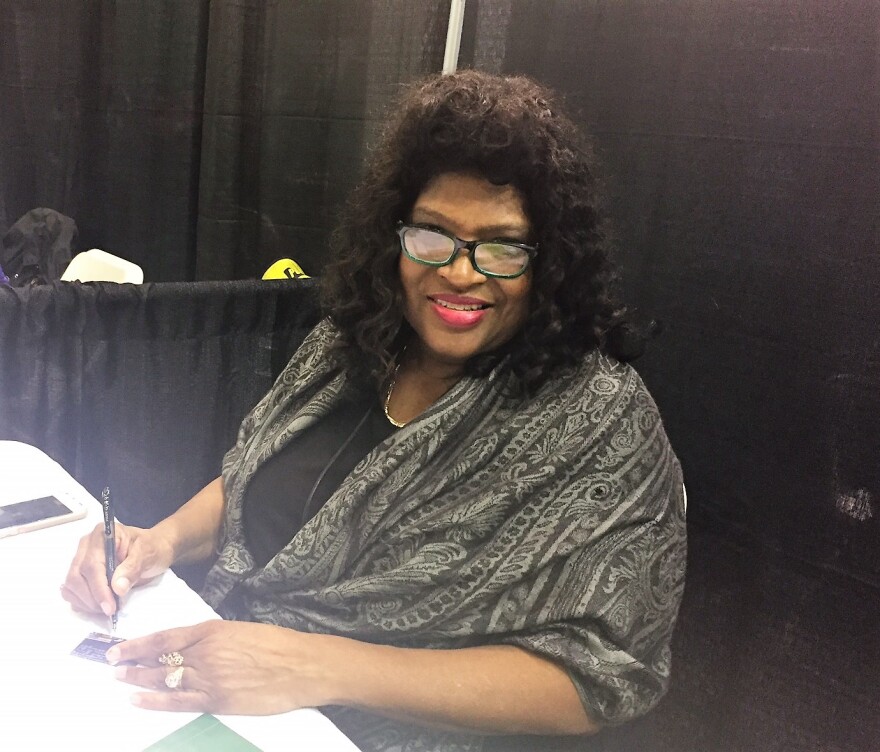Education is once again in the spotlight and so are Florida’s teachers. Local superintendents say they’re struggling to recruit even elementary school educators—a space where finding help has historically been pretty easy. Now the Florida Senate is taking a look, and after years of ratcheting up pressure on teachers, lawmakers could cut them some slack.
Jackson County School District recruiter Shirl Williams is on the hunt for new teachers at Florida A&M University. And as two women come up to her booth, she jumps into the sell:
“We’ve got incentives in our district, we hope it comes into fruition—first months rent in the housing area, free cable for a year," she tells her audience.
Free rent, free cable, moving expenses? What’s not to like?
“I don’t really know. It all depends,” says Karina Gordon, sounding unconvinced by Williams' pitch. Gordon graduates from FAMU in the Spring. And she says whether she becomes a teachers depends, “on how things happen the next couple of months.”
Even though she’s not enthused about the idea, she still puts her name on Williams’ contact list. The struggle to find teachers, is real, says Palm Beach Superintendent Robert Avossa.
“I’ve been involved in the reform movement for over a decade. And I couldn’t have predicted the current conditions and the lack of interest in going into education that we’re seeing today," he recently told a panel of state lawmakers.
The problem is nationwide. Districts have historically seen a shortage of teachers for science and technology fields, and special education. Florida superintendents say the problem is now trickling into elementary schools, where finding educators has tended to become easier. Low income schools remain a big problem area.
“Many are worried about what happens to their career. What happens if you begin to do the turnaround work and at the end of a year the school is still a D or an F? What does that do to their resume, what does that mean for the next job opportunity?” says Escambia Superintendent Malcom Thomas.
The causes of teacher shortages are nuanced. Rural and urban district’s have a harder time finding employees in general. A study by the Learning Policy Institute cites teacher attrition as an issue. Another report from the American Institutes for research says there are plenty of teachers, but not enough in certain areas. Pay has been brought up as a problem too. In Florida, the average teacher salary is about 35-thousand dollars. And in the past few years, the state has eliminated tenure for new teachers, and increasingly placed a greater share of their job security on how well their students perform on standardized tests. Pensacola Republican Senator Doug Broxon says he’s disturbed by what he’s heard:
“If the murmur throughout the state is do everything but be a teacher, we can have the best programs or no programs. But if we don’t have teachers, we have a problem.”
Florida superintendents say they don’t know where the shortages are part of a cycle or a long term trend. The Senate is looking into revamping the teacher bonus program Best and Brightest to reward more teachers for high performance. It’s one of several proposals under consideration.




